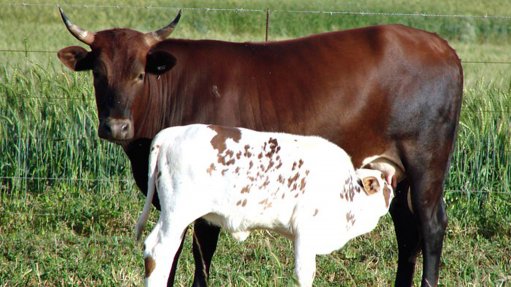
Picture: Nguni SA
To increase the number of black livestock farmers in Gauteng, provincial government on Thursday handed over Nguni cattle to three livestock farmers in Tshwane as part of its Nguni Cattle Project.
“This initiative must not be seen in isolation from our strategy to make Gauteng a hub for agroprocessing and agribusiness,” said Gauteng MEC for Economic Development, Agriculture and Rural Development Lebogang Maile, adding that there were compelling reasons for the province to focus on adding value to agricultural products.
Gauteng’s competitive edge was in food processing, packaging and distribution, as it hosted over half of the companies in South Africa’s food-processing sector.
As such, the investment in livestock farming was expected to have long-term multiplier effects on other sectors of the economy such as the manufacturing of leather, meat and dairy products, advised Maile.
Through the Nguni Cattle Project 30 pregnant Nguni heifers and one bull would be loaned to emerging black farmers for breeding. After five years, the participating farmers would be expected to return the same number of cattle in the form of offspring or the equivalent rand value.
Farmers had to own a minimum of 500 ha, present proof of cattle management skills and entrepreneurial capabilities to qualify for the project.
“The Nguni breed is indigenous to Southern Africa and is renowned for its high fertility, long reproductive lifespan and its adaptability to hostile grazing conditions,” noted the Gauteng Department of Agriculture and Rural Development (GDARD) in a statement.
Nguni Cattle Project Manager Tommy Mohajane emphasised that constant monitoring and farmer support through extension services and project management training would be crucial in the initiative’s success.
The Nguni Cattle Project, which had also been launched in Limpopo, Mpumalanga and the North West, presented specific challenges for Gauteng, as the province had limited land resources and only occupied 1.4% of South Africa’s total land mass.
The project was a partnership between the GDARD, the Industrial Development Corporation and the University of Pretoria. Applications would close on June 30 for the 2015 selection process.